
Overview
Integrated marketing communication (IMC) companies for direct-to-consumer (DTC) brands represent specialized agencies that expertly coordinate marketing efforts across multiple channels. This coordination is crucial for ensuring consistent messaging and significantly enhancing customer engagement.
These companies leverage data-driven strategies alongside cohesive branding, which not only improves visibility but also boosts conversion rates. As such, they have become essential partners for DTC brands navigating a competitive market landscape.
In an era where differentiation is key, the role of IMC companies cannot be overstated.
Introduction
Integrated marketing communication companies are essential to the success of direct-to-consumer (DTC) brands, expertly crafting cohesive narratives that resonate across diverse platforms. By harmonizing marketing efforts, these specialized agencies significantly enhance brand visibility and cultivate deeper connections with consumers, ultimately driving engagement and sales.
As the landscape evolves and competition intensifies, DTC brands must strategically leverage the power of integrated marketing communication to distinguish themselves and achieve sustainable growth.
Define Integrated Marketing Communication Companies
are specialized agencies that harmonize and coordinate all marketing communication efforts, ensuring a consistent message across diverse channels such as advertising, public relations, social media, and direct marketing. This integrated approach is essential for , particularly for . As we look ahead to 2025, the landscape of integrated marketing communication companies that cater to DTC companies is expanding, with a notable increase in the number of firms adopting of the market.
Recent trends reveal that can outperform single or dual-channel campaigns by an impressive 300%. This statistic underscores the significance of a that connects with consumers at every interaction. Successful IMC agencies have demonstrated their ability to craft but also fosters emotional connections with audiences.
Expert opinions emphasize the in shaping messaging, ensuring that all promotional tools function together seamlessly. Shama Hyder, CEO of Zen Media, highlights that integrated campaigns are 31 percent more effective at developing identities. By leveraging data-informed insights and understanding consumer behavior, these agencies empower DTC companies to navigate the intricacies of contemporary promotion, ultimately enhancing engagement and conversion rates. As the demand for integrated promotional solutions continues to rise, the role of an in the DTC sector is becoming increasingly essential for businesses seeking to enhance their market presence and profitability.
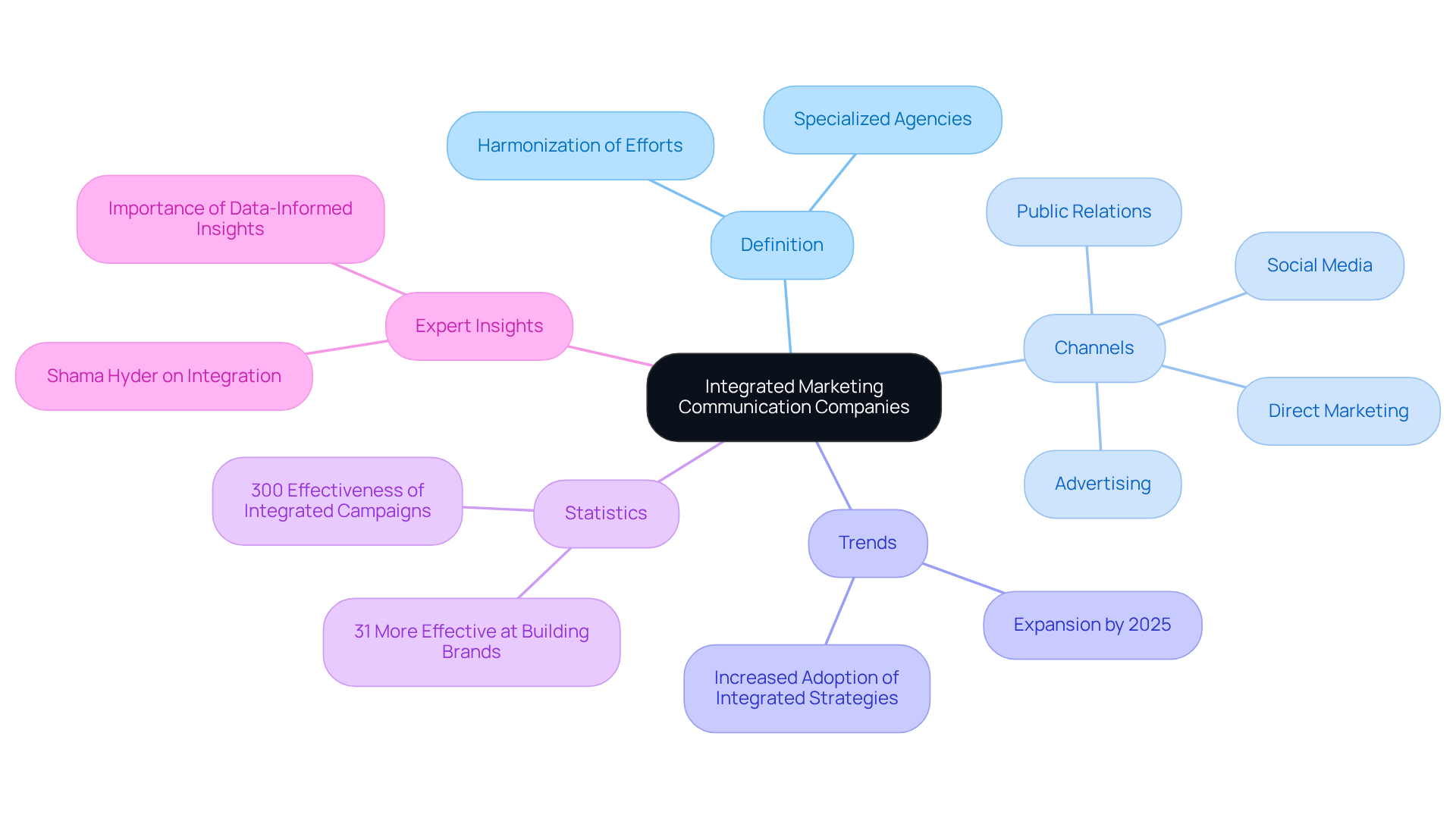
Explain the Importance of IMC for DTC Brands
An serves as a cornerstone for , cultivating a across various channels—an imperative in today’s fragmented media landscape. By synchronizing diverse , an integrated marketing communication company can significantly and ensure that messaging resonates with consumer expectations. This strategic alignment not only fosters trust but also cultivates , ultimately resulting in improved and increased sales. Furthermore, IMC empowers companies to leverage effectively, enabling the continuous refinement of strategies to optimize both effectiveness and efficiency in their .
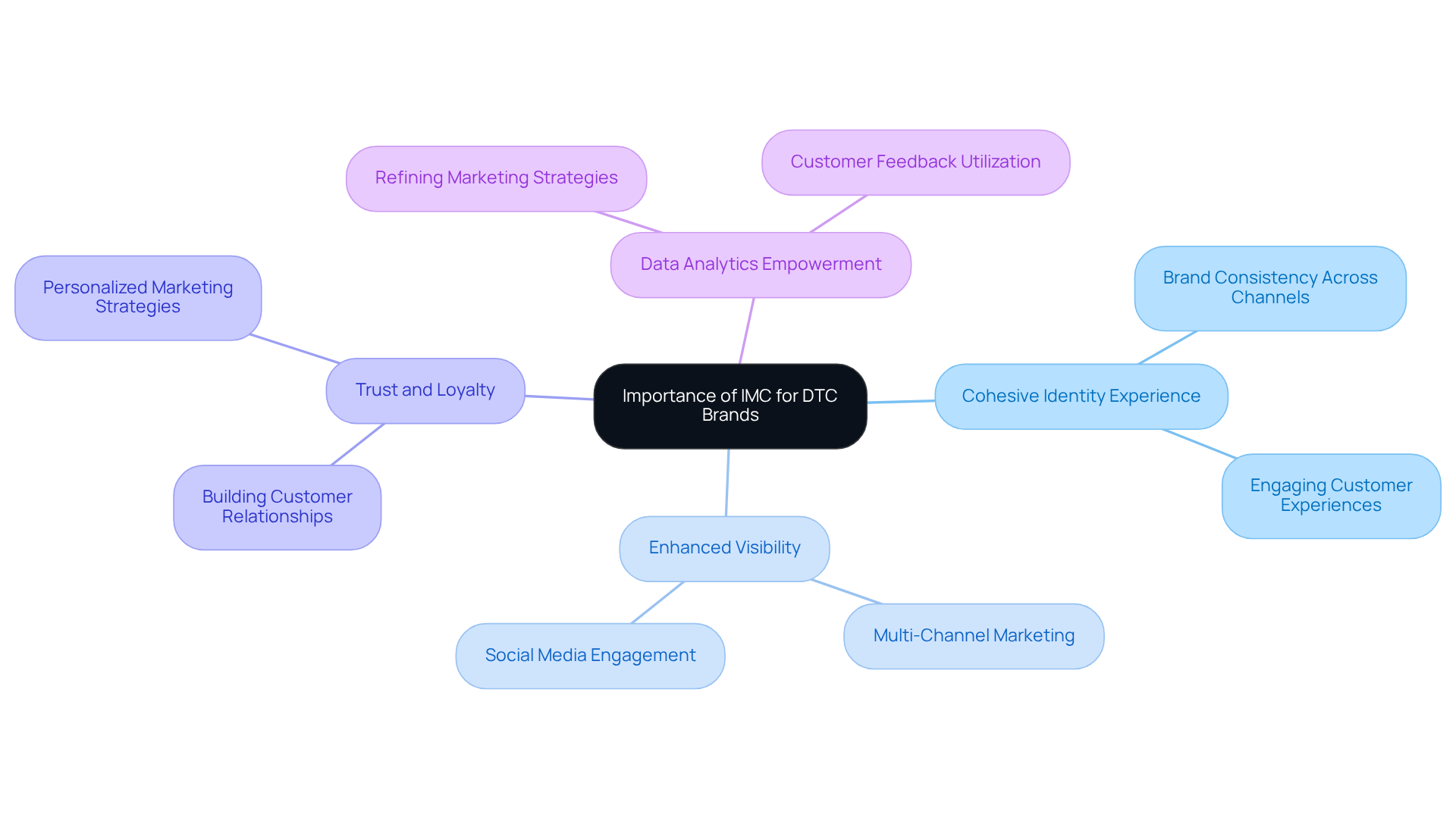
Trace the Evolution of Integrated Marketing Communications
The concept of (IMC) emerged in the late 1980s, as marketers recognized the necessity for a . Initially, IMC predominantly focused on traditional media channels; however, it has with the advent of and social media. This transformation illustrates the intricacies of user interactions in a digital-first setting, where companies must develop across various platforms.
Consequently, the now encompasses a varied range of channels and strategies, empowering businesses to and . The evolution of IMC strategies from the 1980s to 2025 signifies a transition toward a more unified approach, underscoring the significance of consistency and coherence in messaging to among users.
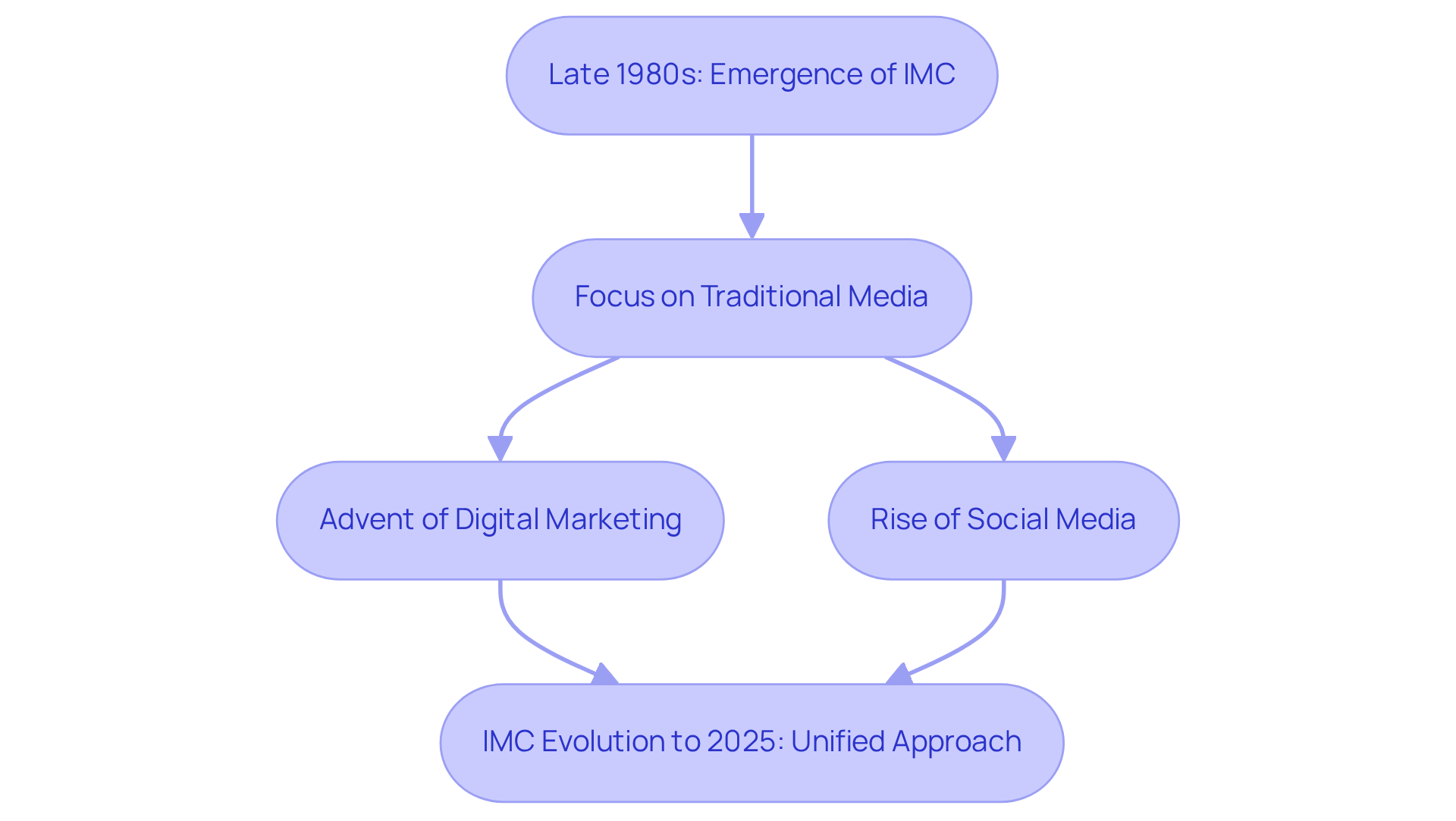
Identify Key Characteristics of Effective IMC Companies
Effective integrated marketing communication companies exhibit several critical characteristics that distinctly position them within the competitive landscape. They emphasize consistency in messaging across all channels, a fundamental aspect for establishing recognition and trust. Research indicates that by nearly 70% and elevate recognition by up to 80%. This unwavering consistency fosters deeper , significantly increasing the likelihood of brand recommendations by 94%.
Moreover, an successfully leverages to inform its promotional decisions. By employing analytics tools, they extract valuable insights into buyer behavior and preferences, facilitating personalized communication that resonates with target audiences. For example, by 35%, underscoring how can catalyze conversions and cultivate customer loyalty. This data-centric methodology not only enhances promotional effectiveness but also aligns with the growing expectation among consumers for companies to take a stance on social issues, as 64% consider a company's position when making purchasing decisions.
are also hallmarks of an effective integrated marketing communication company. By fostering a culture of collaboration, these companies ensure that all promotional efforts align with organizational goals, culminating in a unified customer experience. ; a successful integrated marketing communication company remains agile and responsive to market fluctuations, allowing it to swiftly adapt strategies to meet evolving consumer demands. This adaptability is crucial, as companies that harmonize performance marketing with long-term identity consistency can achieve a 25-100% higher ROI by 2025.
In conclusion, the synergy of consistent messaging, data-driven strategies, collaborative teamwork, and adaptability positions IMC companies as indispensable partners for DTC entities seeking to and drive .
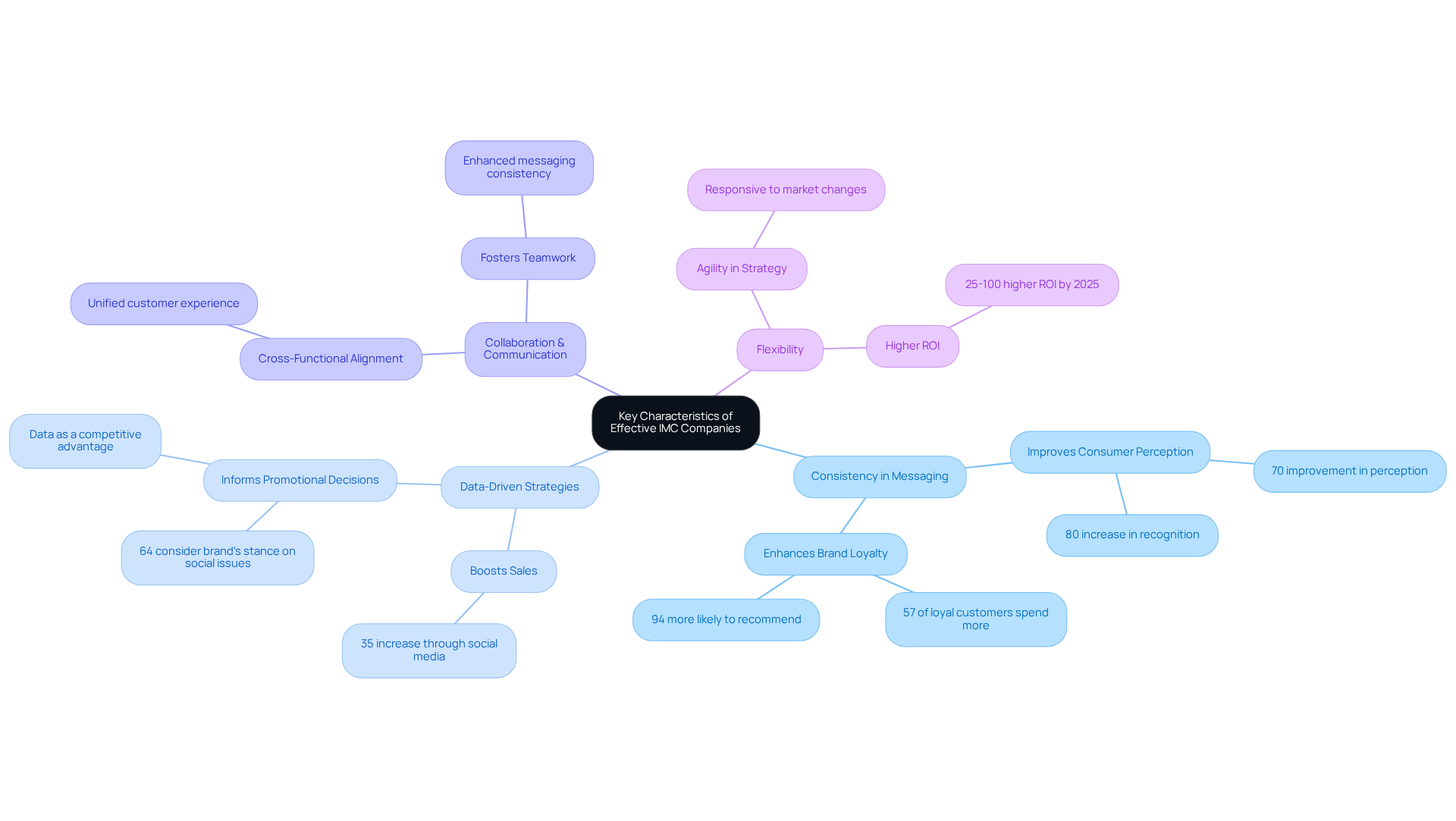
Showcase Examples of Successful IMC Strategies for DTC Brands
Numerous DTC companies have successfully harnessed the strategies of an , showcasing the power of .
- Coca-Cola's 'Share a Coke' campaign serves as a prime illustration; it personalized bottles to enhance through social media, traditional advertising, and in-store promotions. This initiative not only increased sales but also fostered among consumers.
- Similarly, Warby Parker exemplifies the practices of an integrated marketing communication company by seamlessly integrating online and offline experiences. Their innovative home try-on program enables customers to test glasses before purchasing, supported by consistent messaging across digital platforms and retail locations.
These underscore how IMC can significantly elevate customer engagement and experiences, ultimately driving profitability for .
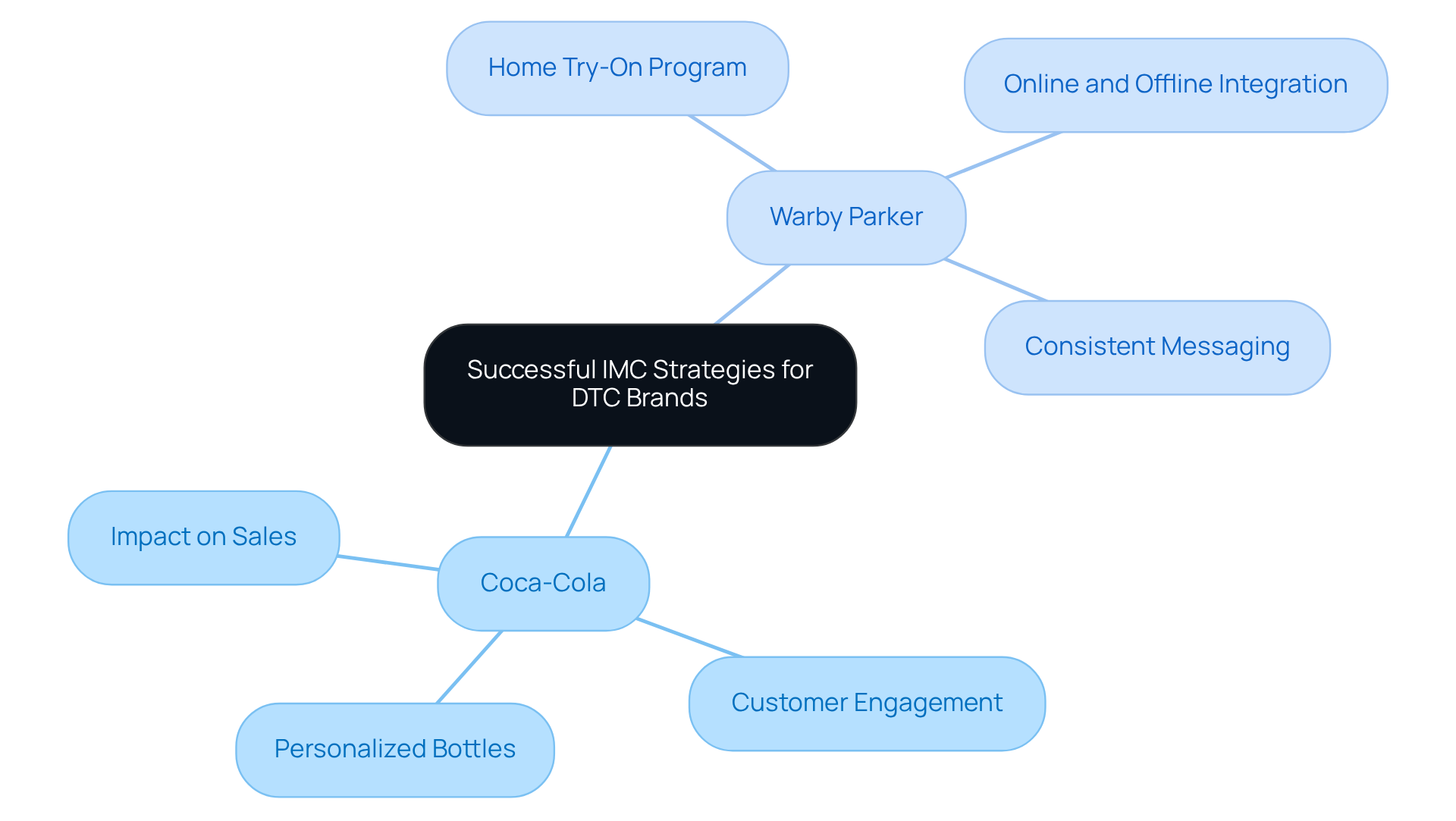
Conclusion
Integrated marketing communication (IMC) companies are essential to the success of direct-to-consumer (DTC) brands, ensuring that all marketing efforts are harmonized and consistent across various channels. This cohesive approach not only enhances brand visibility but also fosters trust and loyalty among consumers—crucial elements in today's competitive marketplace.
The article underscores key insights into the significance of IMC for DTC brands, emphasizing the effectiveness of integrated campaigns that leverage multiple channels. Statistics reveal that integrated strategies can significantly outperform traditional methods, highlighting the value of a unified narrative. Furthermore, the evolution of IMC from its inception in the late 1980s to its current form illustrates how adaptation to digital advancements has become vital for effective consumer engagement.
In conclusion, as the demand for integrated marketing solutions continues to escalate, DTC brands must acknowledge the importance of collaborating with proficient IMC companies. By embracing consistent messaging, data-driven strategies, and collaborative efforts, these brands can not only enhance their market presence but also drive sustainable growth. The call to action is unequivocal: for DTC companies aspiring to thrive, investing in integrated marketing communication is not merely beneficial—it is imperative for long-term success.
Frequently Asked Questions
What are integrated marketing communication companies?
Integrated marketing communication companies are specialized agencies that coordinate and harmonize all marketing communication efforts to ensure a consistent message across various channels, including advertising, public relations, social media, and direct marketing.
Why is integrated marketing communication important for direct-to-consumer (DTC) companies?
Integrated marketing communication is crucial for DTC companies as it helps create a cohesive identity experience across multiple channels, enhances visibility, fosters trust, cultivates customer loyalty, and ultimately improves conversion rates and sales.
How do integrated campaigns compare to single or dual-channel campaigns?
Integrated campaigns that utilize four or more channels can outperform single or dual-channel campaigns by an impressive 300%, highlighting the importance of a unified narrative that engages consumers at every interaction.
What benefits do successful integrated marketing communication agencies provide?
Successful IMC agencies craft impactful messaging that captures attention and fosters emotional connections with audiences, while also leveraging data-informed insights to help DTC companies navigate contemporary promotional challenges.
What role do data analytics play in integrated marketing communication?
Data analytics enable integrated marketing communication companies to continuously refine their strategies, optimizing both the effectiveness and efficiency of promotional efforts for better engagement and conversion rates.
How is the landscape of integrated marketing communication companies evolving?
The landscape is expanding, with an increasing number of firms adopting integrated strategies to meet the evolving demands of the market, particularly for DTC companies.
FAQs











